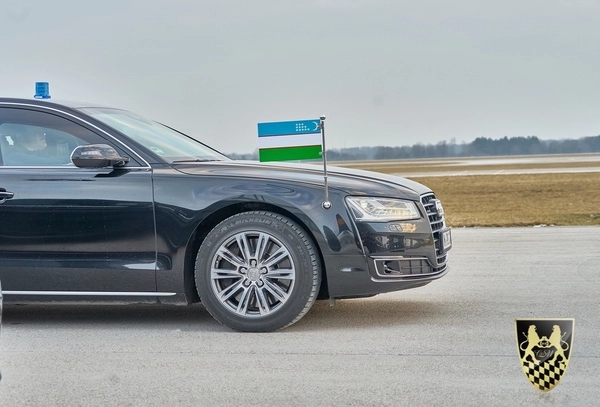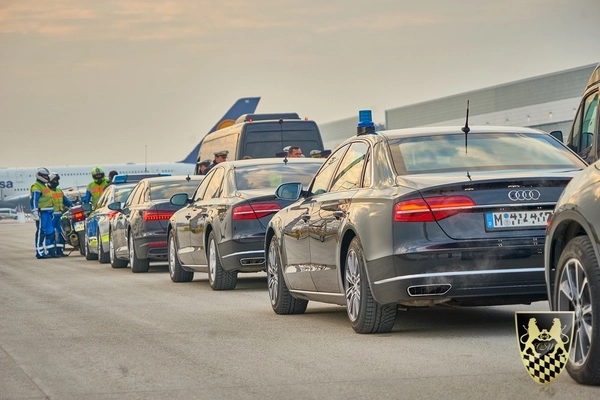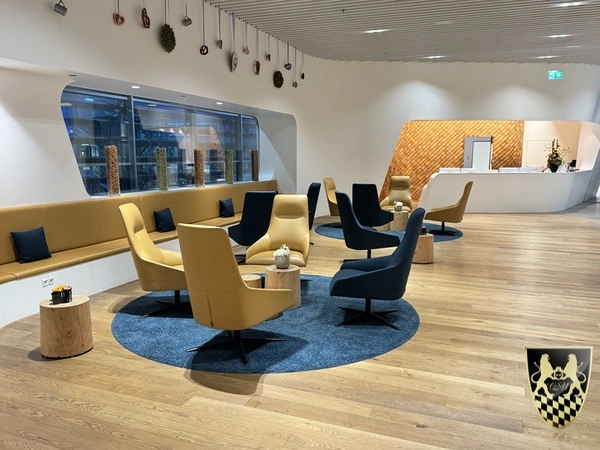The World Economic Forum 2025, held from January 20 to January 24 in Davos, Switzerland, will focus on geopolitical challenges, economic growth, and energy transitions. This article covers its key themes and highlights. The discussions will also delve into the global economic outlook.
Key Takeaways
The World Economic Forum Annual Meeting 2025, scheduled for January 20-24 in Davos, will focus on critical global issues such as geopolitical challenges, economic growth, and equitable energy transitions.
High-profile attendees will benefit from exclusive transportation and services, ensuring a seamless experience as they engage in discussions to address pressing economic and social challenges.
Sustainability, climate action, and rebuilding trust among nations will be central themes, highlighting the need for collaboration and innovative solutions to tackle global crises.
VIP shuttle service from Munich to Davos with limousines and luxury minibuses and multilingual drivers
We offer you all transfers in and around Davos with VIP shuttle and transfer vehicles including very well-trained chauffeurs.
Transfer from Zurich, Bad Ragaz or Munich directly to Davos for delegations and other VIP and VVIP guests, with multilingual German-speaking chauffeurs at attractive prices.
World Economic Forum 2025: Key Highlights and Insights

The World Economic Forum Annual Meeting 2025, taking place from January 20 to January 24 in Davos-Klosters, Switzerland, marks the 54th WEF annual meeting of this prestigious event. Held at the Schweizerische Alpine Mittelschule, this gathering is anticipated to be a cornerstone for global dialogue and action. Registration for the Open Forum closes on January 16, 2025, and participation is free of charge, fostering greater public engagement.
This year’s key themes aim to address key global issues, with discussions centered on geopolitical challenges, economic growth, and a fair energy transition. These topics are timely given the current landscape marked by economic instability, climate change, and social inequities.
The Forum’s agenda offers insights into strategies and policies to navigate these challenges. With world leaders and top executives attending, the event will be a hub for ideas and solutions driving global progress and cooperation. Additionally, the discussions will align with the sustainable development goals, ensuring that the strategies proposed contribute to long-term global objectives.

VIP and VVIP Handling in Davos
High-profile attendees at the World Economic Forum can expect a meticulously planned travel experience. Transportation for VIPs and VVIPs includes exclusive services from major hubs like Munich and Zürich directly to Davos. Zurich Airport, about 153.2 km from Davos, serves as the main arrival point, ensuring a smooth journey for these distinguished guests.
The transfer from Zurich to Davos is streamlined with private taxis and executive limousines, guided by chauffeurs familiar with Swiss routes and event procedures, ensuring timely pickups and efficient luggage handling. Additionally, special arrangements are made for VVIPs traveling from Munich, reflecting the high level of care and attention dedicated to these influential participants.
WEF annual Meeting Transdfer Munich to Davos Klosters
Transfer from Munich Airport to Davos alpine resort
Vip Transfer and handling from Zürich to Davos WEF 2025
Transfer and Shuttle Service from Munich and Zürich to Davos World economic Forum 2025
VIP Handling Airport Munich and Zürich with Limousines, Vans and Minibusses
Introduction
The World Economic Forum Annual Meeting 2025 will unite leaders from government, business, and civil society to tackle critical global issues. The event will cover a wide range of topics, from geopolitical shocks to climate solutions and economic instability, reflecting diverse perspectives for comprehensive problem-solving.
Initiatives to rebuild trust among nations, businesses, and societies will be a focal point, especially given recent geopolitical tensions. The Forum will also stress sustainability and environmental governance as fundamental principles for future development, highlighting the importance of collaborative efforts for global progress.
Overview of the World Economic Forum Annual Meeting 2025

The World Economic Forum Annual Meeting 2025 will be held from January 20 to January 24 in Davos-Klosters, Switzerland, marking its 54th year. Registration for the Open Forum closes on January 16, 2025, at noon Central European Time, and participation is free, promoting inclusivity and public engagement.
This year’s meeting will address key themes like geopolitical challenges, economic growth, and equitable energy transition. These are critical in a global context marked by economic instability, climate change, and social inequities. The Forum will be a vital space for world leaders to collaborate and develop strategies to tackle these issues. Additionally, discussions will emphasize economic resilience to foster stability.
Key Global Challenges Addressed

The World Economic Forum 2025 will serve as a pivotal platform for addressing key global challenges, fostering collaboration across various sectors. Concerns about economic shocks are heightened due to rising geopolitical risks and the effects of climate change, making it imperative for global leaders to come together to develop comprehensive strategies. The Forum will focus on addressing these geopolitical shocks and enhancing living standards through growth stimulation.
Climate change poses a significant threat, particularly to regions like Southeast Asia, where four countries rank among the top 10 most affected by climate impacts over the past two decades. The Forum’s initiatives aim to address climate change, economic inequality, and geopolitical tensions, fostering resilience and adaptability for future uncertainties.
Humanitarian crises and worsening socioeconomic conditions are also on the agenda, with discussions aimed at mitigating risks and finding sustainable solutions. The Forum will gather global leaders to address these challenges, emphasizing coordinated efforts and innovative solutions.

Economic Outlook
The World Economic Forum’s Annual Meeting 2025 will feature a pivotal session on the Economic Outlook, where global leaders will delve into the current state of the economy and the multifaceted challenges it faces. This session is designed to stimulate growth and improve living standards, while also addressing regional challenges and promoting inclusive economic development.
Chief executive officers, managing directors, and other business leaders will converge to share their insights and perspectives on the global economy. The discussion will encompass a wide range of topics, including trade and investment, infrastructure and urbanization, and the impact of technological advancements on the economy. This session will also explore the crucial role of the business community in addressing global challenges and fostering sustainable economic growth.
The Economic Outlook session is a crucial space for global leaders to come together and shape the global agenda on economic issues. By fostering dialogue and collaboration, this session aims to develop strategies that will drive economic progress and resilience in the face of global challenges.

Inclusive Energy Transition
A major topic at the World Economic Forum 2025 will be the importance of a just and inclusive transition in energy systems. The global energy transition has stalled, requiring an approach that ensures energy security while promoting economic growth. The Energy Transition Index, which evaluates 120 countries, highlights the challenges of equitable access to energy amidst the shift towards sustainable sources.
A successful energy transition should balance environmental concerns with energy security and accessibility to foster economic development. Geo-inclusivity highlights that regions like the Global South need tailored energy transition strategies that consider local conditions and unique challenges in this crucial space.
Job creation and reskilling are essential for populations impacted by the energy transition, particularly in lower-income regions.
The Role of Global Leaders and Business Executives
The World Economic Forum Annual Meeting serves as a platform for global leaders to discuss pressing economic and social challenges, with a particular focus on ensuring economic stability. This year, global leaders will focus on stimulating economic growth to enhance living standards during their discussions. Collaboration among global leaders is crucial for tackling complex challenges that transcend national borders.

CEOs and chief executive executives play a vital role in shaping the global agenda at the Forum. Recent meetings have highlighted the importance of public-private partnerships in fostering inclusive and sustainable economic growth. Leaders at the Forum have emphasized the necessity of adaptability and agility in addressing current global challenges.
The meeting will also serve as a platform for diplomatic discussions, particularly concerning Ukraine and the Western Balkans. The insights generated from the Global Future Councils are vital for enhancing global cooperation in response to current crises.
Regional Challenges and Opportunities
Asia is projected to experience substantial GDP growth, with India expected to become a major player in the global economy, potentially surpassing Japan and Germany by 2030. The Association of Southeast Asian Nations (ASEAN) is anticipated to see its trade grow by $1.2 trillion over the next decade, driven by increased regional cooperation.
The fintech sector in Asia is expected to expand to $1.5 trillion in annual revenue by 2030, significantly enhancing financial inclusion. Asia is also developing scalable solutions to address its challenges, including a projected $4.3 trillion opportunity from climate action by 2030. These developments highlight the potential for significant economic opportunities arising from regional cooperation and innovative solutions.
Innovations in Generative AI
Innovations in generative AI will be a key focus at the World Economic Forum 2025, with discussions on technological advancements and their implications for the global workforce. These innovations are crucial for driving inclusive growth and enhancing opportunities for diverse populations. Generative AI offers new opportunities and capabilities for industries, promoting sustainable development and equitable access.

The broad impact of generative AI is expected to reshape various industries and economies. By fostering innovation and collaboration, generative AI can drive future growth and provide new solutions to some of the world’s most pressing challenges.
Civil Society’s Contribution – World Economic Forum 2025
The World Economic Forum’s recent initiatives have highlighted the crucial role of civil society in driving inclusive and sustainable growth through public-private partnerships. The Global Future Councils network focuses on fostering cross-sector dialogue to tackle pressing global issues and build necessary partnerships.
One of the key themes of the Global Future Councils is the emphasis on inclusive growth and climate action to promote global collaboration. Participants have stressed that fostering innovation in social entrepreneurship is vital for creating equitable solutions to global crises. Social enterprises led by young people and women are pivotal in generating about $2 trillion in annual revenue and creating significant employment opportunities.
Strengthening Cooperation Among Stakeholders

The upcoming Annual Meeting aims to unite over 2,800 leaders to foster stakeholder engagement, dialogue, and partnerships for addressing global challenges like economic growth and climate action. Stakeholders from diverse backgrounds will gather to share insights and strategies for future resilience. Efforts will focus on enhancing public-private collaborations to translate ideas into actionable solutions for pressing global issues.
Regulatory inclusivity is crucial to avoid creating policies that disproportionately disadvantage poorer regions in the energy transition. The Global Future Councils consist of thought leaders from varied sectors, facilitating discussions to formulate strategies tackling significant global issues such as economic disparity and climate change.
Rebuilding Trust in a Fractured World – World Economic Forum 2025
In an increasingly fractured world, rebuilding trust among stakeholders is essential for enhancing global cooperation in tackling ongoing crises. The Annual Meeting’s theme is to rebuild confidence amid growing societal divisions and uncertainty. The meeting will feature more than 200 sessions that are open to public livestreaming, promoting accessibility and transparency.
Klaus Schwab, the Founder and Executive Chairman of the World Economic Forum, emphasized the need to address the root causes of current global issues to establish a more optimistic future. Through open dialogue and collaborative efforts, the Forum aims to create a more unified and resilient global community.

Sustainability and Environmental Priorities
Sustainability and environmental priorities will be at the forefront of discussions at the World Economic Forum Annual Meeting 2025. Meeting the climate challenge may require an additional $4 trillion in yearly global investments from 2021 to 2050, underscoring the critical importance of collaborative efforts and innovative solutions to address climate change.
Technological inclusivity involves a broad approach to innovation and collaboration to advance low-emission energy technologies across various sectors. By prioritizing sustainability, the Forum aims to foster a global agenda that promotes both environmental stewardship and economic growth.
Education and Skills – World Economic Forum 2025
The World Economic Forum’s Annual Meeting 2025 will also spotlight the critical importance of education and skills development in addressing global challenges. This session will focus on the need for inclusive and equitable education systems that provide opportunities for all, regardless of background or socio-economic status.
Global leaders, education experts, business leaders, and government officials will gather to discuss the future of work, the impact of technological advancements on education, and the role of business and civil society in promoting education and skills development. The session will explore the fundamental principles of education and skills development, including access, quality, and relevance.
In a rapidly changing world, the importance of lifelong learning and continuous skills development cannot be overstated. This session will emphasize the need for education systems that are adaptable and responsive to the evolving demands of the global economy, ensuring that individuals are equipped with the skills necessary to thrive.

Health and Wellbeing
Health and wellbeing will be a central theme at the World Economic Forum’s Annual Meeting 2025, with a dedicated session focusing on the importance of inclusive and equitable healthcare systems. This session will address the need for healthcare systems that provide access to quality care for all, regardless of background or socio-economic status.
The discussion will cover a range of topics, including the impact of climate change on health, the role of technology in healthcare, and the importance of mental health and wellbeing. Healthcare experts, business leaders, and government officials will share their insights and perspectives on these critical issues.
The Health and Wellbeing session will explore the fundamental principles of healthcare, including access, quality, and affordability. It will also highlight the importance of preventative care and the need for a holistic approach to health and wellbeing, ensuring that individuals and communities are supported in leading healthy and fulfilling lives.
Infrastructure and Urbanization
The World Economic Forum’s Annual Meeting 2025 will feature a session on Infrastructure and Urbanization, emphasizing the importance of sustainable and resilient infrastructure in supporting economic growth and addressing the challenges of urbanization.
Global leaders, infrastructure experts, business leaders, and government officials will discuss the impact of technological advancements on infrastructure, the role of public-private partnerships in infrastructure development, and the importance of urban planning and design. This session will explore the fundamental principles of infrastructure development, including sustainability, resilience, and inclusivity.

Addressing the challenges of urbanization, such as housing, transportation, and public services, is crucial for fostering sustainable and livable cities. This session will highlight innovative solutions and strategies to ensure that urbanization contributes positively to economic development and quality of life.
Trade and Investment – World Economic Forum 2025
Trade and investment will be a key focus at the World Economic Forum’s Annual Meeting 2025, with a session dedicated to discussing their importance in addressing global challenges. This session will emphasize the need for free and fair trade that promotes economic growth and development, while also addressing the challenges of protectionism and trade tensions.
Trade experts, business leaders, and government officials will come together to share their insights and perspectives on the impact of technological advancements on trade, the role of trade agreements in promoting economic growth, and the importance of investment in supporting economic development. The session will explore the fundamental principles of trade, including free and fair trade, and the importance of investment in fostering economic growth.
By addressing the challenges of protectionism and trade tensions, this session aims to promote a more inclusive and equitable global trading system, ensuring that trade and investment contribute to sustainable and inclusive economic development.
Stimulating Growth and Well-Being
Participants from the C-suite, including chief risk officers and chief health officers, will focus on strategies to enhance worker well-being and economic forecasting. Research indicates that a significant majority of executives believe that investing in people sustainability positively affects both economic and environmental outcomes.
Addressing economic inequality requires a multifaceted approach involving various sectors and stakeholders. Engaging with artificial intelligence responsibly can either present significant risks or tremendous opportunities for economic advancement. By focusing on stimulating growth and well-being, the Forum aims to improve living standards globally.
Engaging the Next Generation – World Economic Forum 2025
Youth empowerment is crucial for fostering innovative solutions to global challenges and ensuring a sustainable future. The Global Shapers Community introduced the Innovation Prize to provide youth with training and mentorship to enhance their community initiatives.
Through mentorship and resources, young leaders are prepared to tackle pressing issues and influence positive change. Initiatives targeting youth involvement contribute to shaping a more inclusive and forward-thinking global agenda.
Summary
The World Economic Forum Annual Meeting 2025 in Davos has laid out a comprehensive global agenda addressing some of the most critical challenges of our time. From geopolitical tensions and climate change to economic instability and social inequities, the Forum has highlighted the necessity of collaborative efforts to foster a sustainable and inclusive future. The discussions on inclusive energy transitions, generative AI innovations, and the active engagement of civil society underscore the multifaceted approach needed to drive global progress.
As the Forum concludes, it leaves us with a sense of optimism and a call to action. The insights shared and the partnerships formed during this week will undoubtedly shape policies and strategies in the years to come. By rebuilding trust, strengthening cooperation among stakeholders, and engaging the next generation, the World Economic Forum continues to pave the way for a more resilient and prosperous world.
Frequently Asked Questions – World Economic Forum 2025
What are the key themes of the World Economic Forum Annual Meeting 2025?
The key themes of the World Economic Forum Annual Meeting 2025 include addressing geopolitical challenges, promoting economic development and growth to improve living standards, and ensuring a fair energy transition.
How are VIPs and VVIPs handled during the Forum in Davos?
VIPs and VVIPs are provided with exclusive services, including transportation from major hubs such as Munich and Zürich to Davos, ensuring a seamless travel experience through private taxis and executive limousines.
What role do global leaders and business executives play at the Forum?
Global leaders and business executives play a crucial role in shaping the global agenda, fostering public-private partnerships, and collaboratively addressing complex challenges. Their participation enhances the effectiveness of initiatives aimed at resolving pressing global issues.
How does the Forum address the issue of climate change?
The Forum addresses climate change by emphasizing sustainability and aligning its efforts with the sustainable development goals, urging for significant investments and technological inclusivity to tackle environmental challenges effectively. This proactive approach underscores the importance of collective action in mitigating climate issues.
What initiatives are in place to engage the next generation at the Forum?
The Global Shapers Community has implemented the Innovation Prize, which offers training and mentorship to empower youth to become influential leaders who can address critical challenges. This youth empowerment initiative actively engages the next generation in meaningful development.
